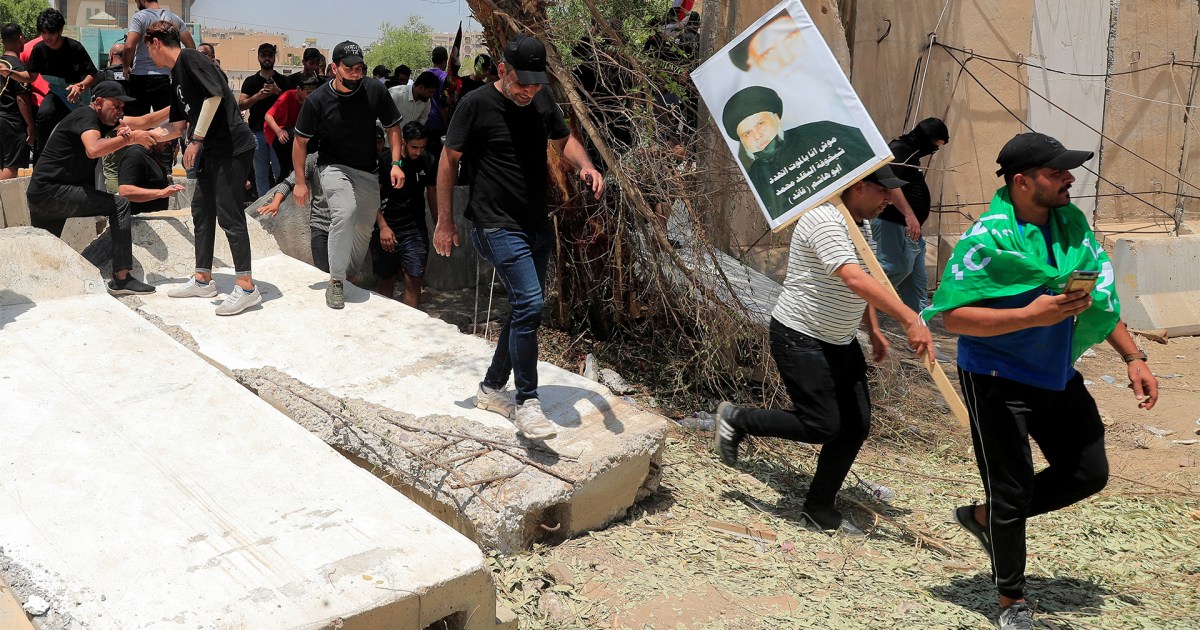The "Coordination Framework" is an Iraqi political coalition that was formed in October 2021 from Shiite forces with the aim of forming a consensus quota government, and the leader of the Sadrist movement, Muqtada al-Sadr, opposed it, demanding a political majority government.
The coordination framework constituted the major force within the House of Representatives for the purpose of choosing the prime minister and forming the government, and included under this framework about 130 parliamentarians out of 329, after the withdrawal of the Sadrist bloc from the House of Representatives (73 deputies) in June 2022.
Birth and founding
The coordination framework was formed on October 11, 2021, with the aim of coordinating the positions of the Shiite forces rejecting the preliminary results of the early parliamentary elections, which demanded that they be recounted manually, due to the significant decrease in the number of their seats compared to the previous elections.
The framework included a group of forces allied to Iran and the Popular Mobilization factions, namely: the "State of Law Coalition" led by Nuri al-Maliki, the "Al-Fateh Alliance" led by Hadi al-Amiri, the "Ata' Movement", the "Rights Movement", and the "Virtue Party", in addition to To the "Coalition of State Forces" led by Ammar al-Hakim and Haider al-Abadi.
Thought and ideology
Despite the varying orientations of the forces of the coordination framework, it consists of a group of parties and Islamic forces, which are classified among the Shiite forces loyal to Iran, and they have good relations and close ties with Iran.
Flags and symbols
Hadi Al-Amri
The leader of the Al-Fateh coalition, and he was head of the Security and Defense Committee, and then Minister of Transport during the mandate of Nuri al-Maliki, and he heads the Badr Organization, one of the main factions in the so-called “Popular Mobilization”, a coalition of several armed groups that participated in the war against the Islamic State, and was Later, it was incorporated into the Iraqi army.
Nouri al-Maliki
Leader of the Dawa Party, he served the longest term as prime minister in Iraq between 2006 and 2014, and was Vice President of the Republic from September 9, 2014 until August 11, 2015.
Ammar al-Hakim
He is a Shiite politician and spiritual leader, who heads the "Hikma Movement", and is a central figure in the coordination framework.
Haider Al-Abadi
The former Iraqi Prime Minister, he held office in 2014 until October 2018, and was a prominent member of the Islamic Dawa Party, before announcing his withdrawal from it to head the Victory Alliance, which is currently affiliated with the “National State Forces” alliance with the “Hikma Movement” led by Ammar al-Hakim.
Qais Khazali
He was born in 1974, and was one of the leaders in the Mahdi Army of the Sadrist movement in 2003. He founded the "Asa'ib Ahl al-Haq" group in 2005, and the "Sadiquon" bloc in the parliament.
Highlights
Challenging the results of the early elections in 2021 was the first political position issued by the coordination framework, where it pledged to take all available measures to prevent voter tampering.
In October 2021, supporters of the coordination framework took to the streets in protests demanding the annulment of the election results, and the coordination of armed factions threatened to resort to fighting if the demonstrators who rejected the results were harmed.
In December 2021, the framework announced the formation of 3 committees, the first headed by Hadi al-Amiri to dialogue with Muqtada al-Sadr, the second headed by Nuri al-Maliki to dialogue with the leader of the Kurdistan Democratic Party Massoud Barzani, and the third headed by Qais al-Khazali to dialogue with the Sunni Sovereignty Alliance led by the leader of the "Progress" bloc. Parliament Speaker Muhammad al-Halbousi and leader of the Azm bloc Khamis al-Khanjar.
On January 10, 2022, the "Coordination Framework" coalition in Iraq announced its refusal to elect the speaker and two deputies, considering it "illegal" in the absence of the oldest interim speaker.
On February 9, 2022, the coordinating framework launched an initiative in which it called on all political forces and national figures to start a new phase of communication and dialogue, to achieve the constitutional obligations and complete the sovereign positions in order to achieve a real partnership in managing the country.
On March 31, 2022, the leader of the Sadrist movement, Muqtada al-Sadr, announced giving the "coordinating framework" an opportunity to negotiate with parliamentary parties, with the exception of his list, to form a government and get out of the political crisis that the country has been experiencing for months.
In early April 2022, the coordination framework responded to al-Sadr's deadline, affirming its adherence to the major bloc, and called on the Sadrist bloc to form a joint committee between them to agree on naming a prime minister for the Iraqi government.
In May 2022, after its failure to form a consensus government, the coordination framework launched a new initiative to address the political impasse, by bringing all parties to the dialogue table and discussing solutions and remedies without preconditions or restrictions.
In June 2022, the framework became the largest force in the Iraqi parliament after the resignation of all representatives of the Sadrist bloc, and confirmed its openness to all political forces in order to form a government.
On July 25, 2022, the "Coordinating Framework" coalition announced the nomination of Muhammad Shia'a Al-Sudani to head the next government, which prompted the Sadrist movement's supporters to storm the Iraqi parliament building and sit inside it in protest against this nomination.
On July 31, 2022, the coordinating framework called on its supporters to demonstrate in defense of the state and its institutions, and in response to statements by the leader of the Sadrist movement, Muqtada al-Sadr, in which he considered the political developments in Iraq an opportunity to fundamentally change the political system, the constitution, and elections.

